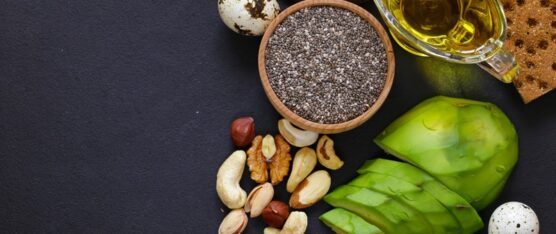
The Role of Nutrition in Postpartum Mental Health
By Rebeca Pop, Features Editor, The Wellness Collective
Postpartum wellbeing is often viewed through the lens of sleep schedules, baby blues, and hormonal changes—but an essential part of the conversation is still being overlooked: nutrition.
Increasingly, research highlights the powerful role diet plays in shaping a mother’s mental health after childbirth. From mood swings to energy crashes, many of the challenges women face in the weeks and months following delivery can be influenced—if not alleviated—by the food on their plate and the balance in their gut.
This is especially relevant in fast-paced, multicultural places like the UAE, where mothers often juggle high expectations, limited postpartum support, and lifestyles that can sideline consistent, nourishing meals.
The Gut–Brain Connection
The gut and brain are more connected than many realise. The enteric nervous system, often called the “second brain,” communicates constantly with the brain via the vagus nerve. More than 90% of serotonin—the neurotransmitter that helps regulate mood, anxiety, and happiness—is produced in the gut.
This means a disrupted gut microbiome can play a significant role in the development of anxiety and depression, both of which affect a substantial percentage of women in the postpartum period. Inflammatory foods, erratic eating patterns, and nutrient deficiencies all contribute to this imbalance.
While it’s common to attribute postpartum emotional changes solely to fluctuating hormones, it’s essential to consider the underlying biological landscape created by diet and digestion.
Nutritional Gaps in the Fourth Trimester
The postpartum period, sometimes called the “fourth trimester,” is a time of intense physical and emotional recovery. Whether a mother is breastfeeding or not, her body is still in high demand: repairing tissues, replenishing lost nutrients, and recalibrating hormone levels.
Despite this, many mothers unintentionally neglect their own nutritional needs. Skipping meals, relying on processed snacks, or turning to caffeine and sugar for quick energy are common habits that can create long-term consequences for mental wellbeing.
Key nutrients often depleted during pregnancy and postpartum include:
- Omega-3 fatty acids (especially DHA): essential for brain health and reducing inflammation.
- B vitamins (like B12 and folate): support mood, energy, and neurological function.
- Iron: critical for preventing fatigue and brain fog, especially in women who experienced blood loss during birth.
- Magnesium and zinc: help regulate the nervous system and manage stress.
- Probiotics and fiber: support gut health and, by extension, emotional balance.
In the UAE, where temperatures soar during summer and lifestyles can be demanding, the temptation to rely on convenience foods is understandable. But a nutrient-poor diet can amplify emotional lows, increase anxiety, and prolong recovery.
Food as Emotional Support
Around the world, cultures have long understood the healing power of postpartum nutrition. In traditional Chinese medicine, new mothers are fed warming broths and soft grains. In India, families often prepare ghee-laced stews and spiced lentils to nourish the mother’s body and mind. In the Middle East, dates, fenugreek, and cumin-laced dishes are common in postpartum care.
These aren’t just comforting meals—they are strategic, restorative tools designed to stabilise the body and mind. Yet many women living in urban, modern environments—especially expat mothers far from family support systems—miss out on this intentional nourishment.
Fortunately, awareness is growing. A number of UAE-based wellness services now offer postpartum meal delivery with tailored menus focused on healing and hormone support. Homegrown cafes are starting to promote gut-friendly, mood-boosting meals, and more dietitians are specialising in postpartum care.
Practical Steps for Postpartum Nutrition
While every woman’s postpartum journey is unique, there are some foundational steps that can make a significant difference:
- Eat warm, cooked meals when possible. These are easier to digest and more grounding for the nervous system.
- Include healthy fats daily—from olive oil and nuts to avocados and oily fish.
- Aim for balance: combine complex carbs, protein, and fat at each meal to avoid blood sugar crashes.
- Support the gut with fermented foods like kefir, yogurt, kimchi, and fiber-rich vegetables.
- Stay hydrated, especially when breastfeeding, to avoid energy dips and mood fluctuations.
- Consider supplementation, particularly for iron, vitamin D, and omega-3s—always under professional guidance.
Just as important: ask for help. Whether it’s through a partner, friend, or community support group, access to regular, nutritious food should be a core part of postpartum care—not a luxury.
A Shift in Perspective
In the same way society is beginning to normalise discussions around postpartum depression and anxiety, it’s time to elevate nutrition as a central pillar in that dialogue.
Food isn’t just fuel. For postpartum women, it’s medicine, mood stabiliser, and self-care all in one. In a culture that often glorifies “bouncing back,” we must remember: true healing begins on the inside. Supporting a mother’s mental health starts with supporting her plate.
Related post







